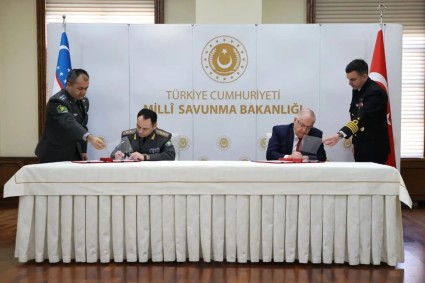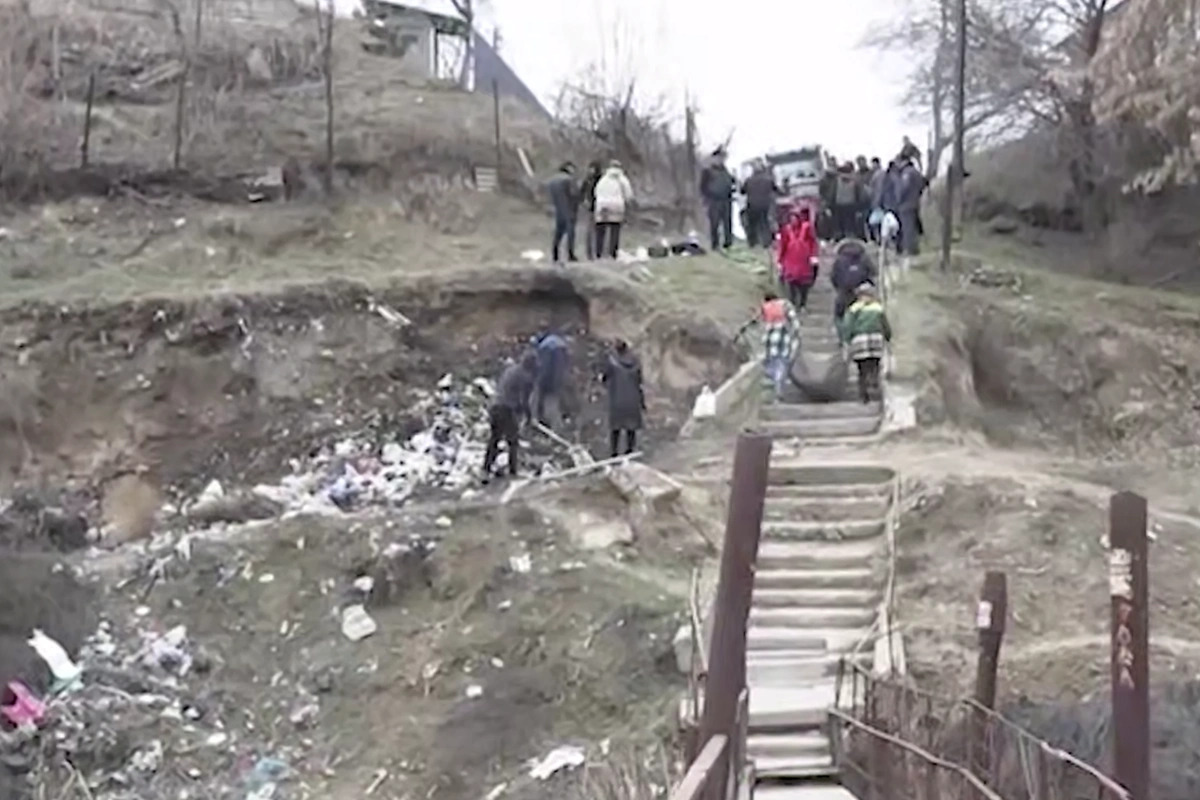Central Asia is warming faster than the global average. Average annual temperatures have risen by 0.5 degrees Celsius over the last three decades and are forecast to increase by 2.0 to 5.7 degrees Celsius by 2085. Increased incidence and velocity of extreme weather events and disasters threaten physical security, critical infrastructure and access to healthcare and education.
This was the background for a high-level climate change conference in Tashkent this week under the theme ‘From global knowledge to local solutions: climate resilient institutions in Central Asia.’ The UN Development Programme organized the event with the Government of Germany (GIZ) and in cooperation with Uzhydromet, the Ministry of Foreign Affairs, the Ministry of Agriculture, and the Ministry of Water Resources. More than 100 delegates engaged in a compressive dialogue around environmental threats and called on all Central Asian states to join forces to develop a sound balance between mitigation and adaptation to climate change.
UNDP Resident Representative in Uzbekistan Matilda Dimovska said the conference demonstrates an excellent example of joint actions between international organizations in mitigation and adaptation of climate change in Central Asia. “It is clear that no one nation or organization will make an effective contribution alone,” she said. “But working together we can accomplish great things in overcoming this existential threat to humanity.”
Nine out of every ten natural disasters today are climate-related. Additionally, changes in climate will likely affect local and regional economies, as overexploitation and lack of resources are projected to impact key industries such as agriculture, energy, and other water-dependent activities. Thus, the participants focused on improving the regional dialogue and awareness among vulnerable sectors of the economy on Climate Change and resilience. They highlighted the importance of enhancing community-based climate-related early warning and prevention measures in transborder areas of Central Asia.
Mr. Mereke Pshembaev, Vice-Minister for Emergency Situations of the Republic of Kazakhstan in his statement highlighted the openness of the Ministry for further exchange of experience in the area of climate risks mitigation and climate change adaptation.
Mr. Asylbek Mazaripov, Deputy Minister of Emergency Situations of Kyrgyz Republic in his welcome speech, emphasized the importance of developing long-term visions on increasing resilience to climate change and natural disasters through the adoption of comprehensive measures to combat climate change together with all stakeholders. “We need to enhance our multilateral cooperation and continue the exchange of information on climate change and best practices, as well as a knowledge base for assessing the risks of climate resilience in Central Asia, which will result in the development of joint solutions for the sustainable and dynamic development of the Central Asian region.”
Colonel Hotamsho Latifzoda, First Deputy Chair of the Committee of Emergency Situations and Civil Defense under the Government of the Republic of Tajikistan highlighted "We live in an era of climate change that impacts all of us. Climate is a "threat multiplier" but also an "accelerant" for global cooperation. This fact contributes to unity of peoples and cooperation towards global sustainable development, taking into account climate change adaptation."
Mr. Makhtumkuli Akmuradov, Advisor at International Organizations department of the Ministry of Foreign Affairs of Turkmenistan noted, “Resolving the issues of climate change adaptation relies on comprehensive transboundary approach”.
Mr. Boriy Alikhanov, Senator, Chairman of the Committee of the Senate of the Oliy Majlis of the Republic of Uzbekistan on the development of the Aral Sea region highlighted, "The main goal of joint actions should be to find solutions and their implementation to stabilize the aquatic ecosystem of the region. Innovative approaches are needed to stabilize glaciers and ecosystems of the upper catchment area, increase water resources, improve the efficiency of their use, further stabilize the Aral Sea area, stop desertification and reduce the impact of droughts. All of these actions will become the basis for eliminating risks for the socio-economic development of the region."
The first plenary session focused on measures to increase climate change and disaster resilience in Central Asia. The participants disclosed the climate policies of the Central Asian states with regard to the security risks associated with climate change.
As a result of the second plenary session focused on the water-energy-food-health nexus for achieving the SDGs, the participants defined the scope of actions for implementing climate change adaptation and risk reduction measures, as well as increasing climate resilience in water use and land management in the five Central Asian countries.
The main topic of the third plenary session was regional partnership and exchange through the involvement of national governments and regional intergovernmental institutions and platforms in the region.
The participants noted that given the nature of climate risks and shared natural resources, climate action can be seen as an entry point for strengthened regional cooperation. In recent years Central Asian states of Kazakhstan, the Kyrgyz Republic, Tajikistan, Turkmenistan, and Uzbekistan have made remarkable progress in climate change adaptation and achieving green growth based on natural capital. They initiated the establishment of an inter-sector cooperation on mitigation and adaptation of the Climate Change resilience on management of natural resources.














